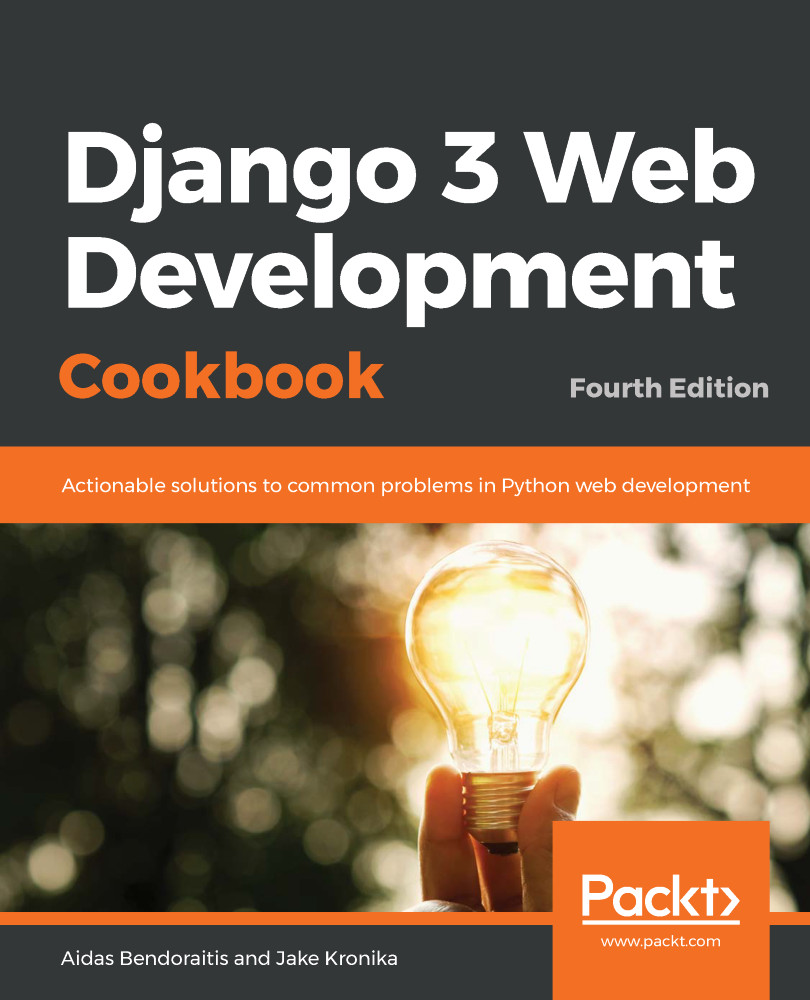In this chapter, we will cover the following topics:
- Working with a virtual environment
- Creating a project file structure
- Handling project dependencies with pip
- Configuring settings for development, testing, staging, and production environments
- Defining relative paths in the settings
- Handling sensitive settings
- Including external dependencies in your project
- Setting up STATIC_URL dynamically
- Setting UTF-8 as the default encoding for the MySQL configuration
- Creating the Git ignore file
- Deleting Python-compiled files
- Respecting the import order in Python files
- Creating an app configuration
- Defining overwritable app settings
- Working with Docker containers for Django, Gunicorn, Nginx, and PostgreSQL


